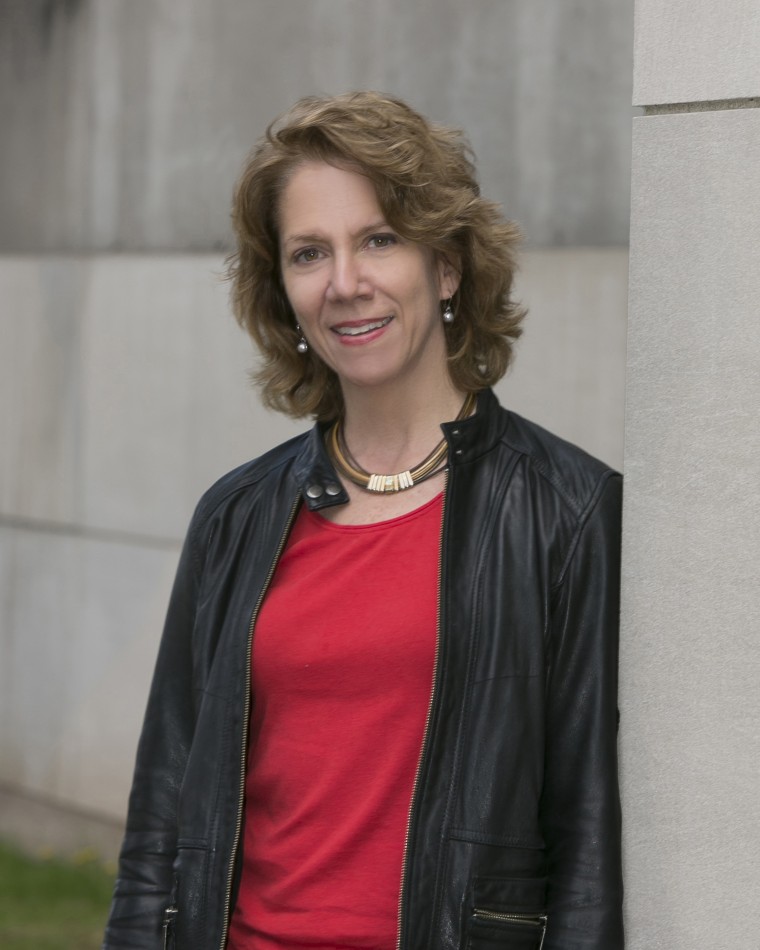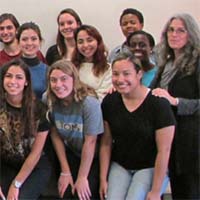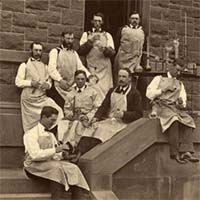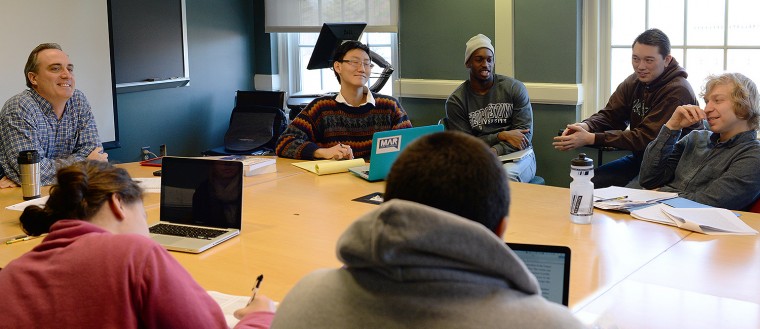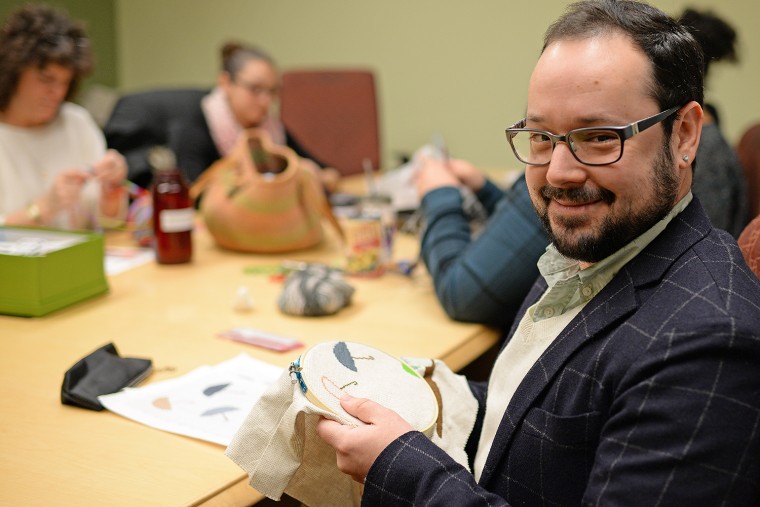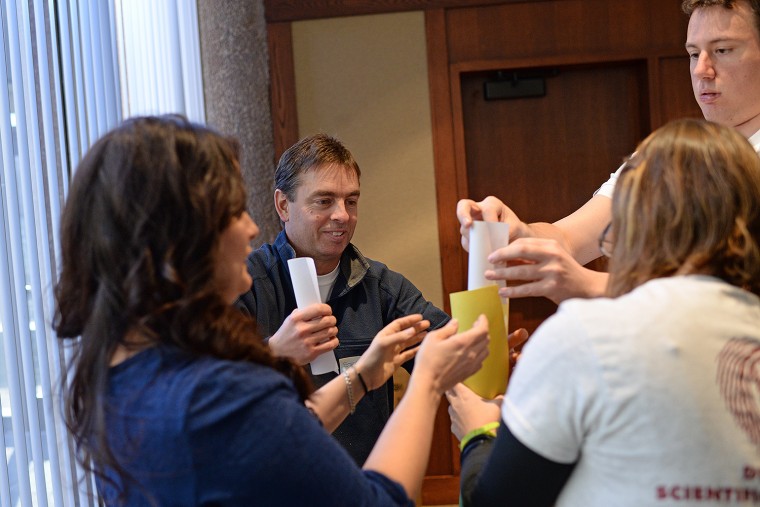Center for the Arts Director Pamela Tatge '84, MALS '10, P '16, will leave the university in April to serve as executive director of Jacob’s Pillow Dance Festival. There, she will set the artistic vision and strategic goals for the organization, including programming one of America’s longest-running international dance festivals, and overseeing education, preservation, and audience engagement programs, as well as marketing and development. For the past 16 years, Tatge has overseen robust programming in music, dance, theater, and visual arts at the CFA. She has supported the realization of faculty and student work in the arts and spearheaded the development of the university’s…
Professor of Religion Elizabeth McAlister is the author of a new paper, "The Militarization of Prayer in America: White and Native American Spiritual Warfare" published Jan. 4 in the Journal of Religious and Political Practice. In the article, McAlister examines how militarism has come to be one of the generative forces of the prayer practices of millions of Christians across the globe. She focuses on the articulation between militarization and aggressive forms of prayer, especially the evangelical warfare prayer developed by North Americans since the 1980s. Against the backdrop of the rise in military spending and neoliberal economic policies, spiritual warfare evangelicals…
What started out as a class assignment has evolved into a public website. During the fall semester, students enrolled in the Philosophy 268 course, The Ethics of Captivity, explored the various forms and conditions of captivity, including prisons, zoos, laboratories and sanctuaries. As one of the class assignments, Lori Gruen, the William Griffin Professor of Philosophy and chair of the Philosophy Department, asked her students to work in small groups on a blog post, highlighting a variety of ethical and political issues that captivity raises for humans and other animals. (more…)
On the release of the U.S. Department of Agriculture's latest dietary guidelines, The Washington Post looks back at the man responsible for starting it all: William Olin Atwater, Class of 1865 and later a chemistry professor at Wesleyan, who authored the very first dietary guidelines in 1894. According to the Post, at that time, the U.S. government provided basically no funding into nutritional research, and good nutrition meant simply getting enough to eat. But Atwater was a firm believer that nutrition was about more than simply staving off hunger. He framed the effort to figure out what foods are good for you as a moral…
Wesleyan’s Winter Session, held Jan. 6-19, provides students with an opportunity to take a full-semester course in only two weeks. Students completed reading and writing assignments before classes started. Classes meet five hours per day. Indira Karamcheti, associate professor of American studies, is teaching ENGL246: Personalizing History. Students participate in daily memoir reading and writing, and question how they are shaped by their historical times and places. Students construct narratives about our times and selves in a series of writing workshops. They discuss memory itself, childhood, place and displacement, language, loss/trauma/melancholia/nostalgia, self-invention or transformation, family and generational differences. The class engages with…
A group of Wesleyan staff members is forming a "close-knit" community over crocheting and crafts. Dubbed the Wesleyan Society for the Preservation of Domestic Technology, the group held its first meeting Jan. 6 in Usdan University Center. Participants gathered for one hour for crafting and camaraderie. “You provide your own lunch and supplies, and we provide an environment fostering whimsy, creativity and technical facility in the traditional craft arts,” said group creator Nate Lerner, director of university events and scheduling. “All campus crafters are welcome!” Lerner brought a cross-stitch project to the gathering. "This is a scene from the Miyazaki film…
On Jan. 6, Wesleyan's Campus Community Emergency Response Team (C-CERT) trainees participated in a team-building exercise.
While working in groups of three and four, the teams each had five minutes to plan how they’d construct a 5-foot-tall, free standing tower using only paper, two sheets of cardboard, tape and scissors.
After developing a plan, the groups had five minutes to build their structure.
Jon Barlow, professor of music, emeritus, died Dec. 15 at the age of 73. Barlow arrived at Wesleyan in 1966 after receiving his BA and MA from Cornell University. He arrived as the Music Department began its visionary phase and taught in the department for 34 years. Grounded in “Western” music history, Barlow expanded his horizons geographically and conceptually, constantly creating innovative courses, which attracted serious students. Many of his students went on to become established composers, performers, musicologists and ethnomusicologists. (more…)
Richard Grossman, professor of economics, and Masami Imai, professor and chair of economics, professor of East Asian studies, are the authors of an article published January 2016 in Explorations in Economic History. The article is titled "Taking the lord's name in vain: The impact of connected directors on 19th century British banks." Grossman and Imai considered the appointment of prominent, well-connected individuals (former members of Parliament and lords) to the boards of directors of banks in pre-World War I Britain, and investigated whether their presence enhanced equity value for bank shareholders. Surprisingly, they found that these individuals actually had negative effects on bank equity returns. The…
Gary Yohe, the Huffington Foundation Professor of Economics and Environmental Studies, appeared on the RT show "Boom Bust" to discuss the impact of climate change on business and the economy. (Yohe's interview begins at 3:45). He was asked what sectors of the economy are being affected the most by the forces of climate change. "Agriculture comes to mind. It's not just hurricanes and extreme precipitation events—although that seems to be happening along the East Coast. Any [real estate or] infrastructure that's located near the coast line or near a river, for that matter, is in increasing vulnerability. But it's more than that. It's [...] agriculture,…
A hundred years ago, Christmas in Russia looked a lot like Christmas in America, with trees, presents and twinkling lights. All that changed with the Russian revolution, Assistant Professor of History Victoria Smolkin-Rothrock told NPR in an interview about the history of the Yolka, or New Year's tree. "The tree comes to be seen as a symbol of both the bourgeois order, which is one kind of class enemy, and of religion in particular, which is another kind of class enemy," explains Smolkin-Rothrock. "There are very explicit statements that essentially unmask the Christmas tree for the class symbol that it is. It becomes clear that one does not…
The campaign season so far has seen a significant increase in the volume of GOP presidential ads, and an explosion in advertising by super PACs and other outside groups. Outside groups sponsored 81 percent of ads between January 1–December 9, 2015—a 71 percent increase over 2011, and 12,000 percent increase over 2007. This was the finding of an analysis by the Wesleyan Media Project, its first of the 2016 election cycle. The "remarkable growth in campaign activity by independent groups" it found was covered by The Washington Post, NPR, The Wall Street Journal, Reuters, USA Today, Vox and others. Notably, the report found little…


